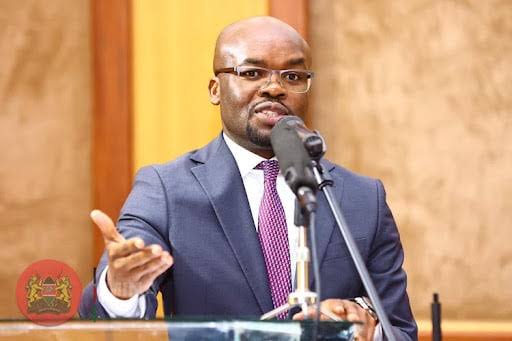
The fight against the proliferation of small arms and light weapons in the Great Lakes Region and the Horn of Africa has received a significant boost.
This follows a recommendation by a Forum of Government Experts to adopt a revised Agreement Establishing the Regional Centre on Small Arms (RECSA).
The move marks a bold step towards modernising the institution’s legal and operational framework to reflect current security realities and ensure long-term sustainability.
The recommendation comes at a pivotal moment as RECSA commemorates 20 years since its establishment.
The comprehensive review of the founding document was proposed to assess the adequacy, effectiveness and relevance of the centre's current mandate.
The director of Kenya’s National Focal Point on Small Arms and Light Weapons Jacinta Muthoni said the review report – first presented during the 15th Technical Advisory Committee (TAC) meeting in November 2024 – identified legal and operational gaps, which the team of experts have now conclusively addressed to align with international instruments.
In her assessment after chairing the forum, she said the revised agreement will significantly enhance RECSA’s capacity to deliver on its mission across the 15 member states.
“We have critically analysed all the observations, and we are in concurrence that a new legal and institutional framework is long overdue. We must adopt it to meet the contemporary demands of arms control in the region,” she said.
During the two-day dialogue, the team also examined the implementation status of previous RECSA Council resolutions, evaluated regional progress on the Nairobi Protocol, and analysed the legal and institutional frameworks currently supporting SALW control.
The experts, comprising National Focal Points from all 15 RECSA member states, technical representatives from national and regional SALW control institutions, and RECSA Secretariat officials, also underscored the urgent need for a more responsive and sustainable funding model tailored to current regional peace and security efforts.
Rwanda's Commissioner of Police, Vianney Nshimiyimana, who co-chaired the forum, said the team was convinced the current framework is no longer fit for purpose.
“It has been 20 years now and the regional security landscape has evolved. We must adapt,” Vianney said.
“The insights and recommendations from this forum will be instrumental in shaping RECSA’s future, ensuring it remains a robust and effective mechanism for regional security cooperation.”
The team’s comprehensive technical report will be submitted for review and discussion at the 16th TAC meeting, chaired by Interior PS Raymond Omollo ahead of the upcoming high-level ministerial session.
Omollo had asked member states to move from policy promises to practical solutions in the fight against illicit arms.
The arms continue to destabilise communities and undermine development across the region.
Omollo said it is high time the 15 member states of the Regional Centre on Small Arms (RECSA) matched words with action, citing the urgent need for a united and coordinated response to the escalating regional threat.
He said the problem lies less in policy gaps and more in persistent enforcement failures, porous borders, and the lack of coordinated regional response.
“We already understand the nature of the threat we're dealing with,” Omollo said.
“What we now require are practical, coordinated and actionable responses to track and disrupt illicit arms flows, strengthen national control systems, and improve intelligence and information sharing across borders.”















